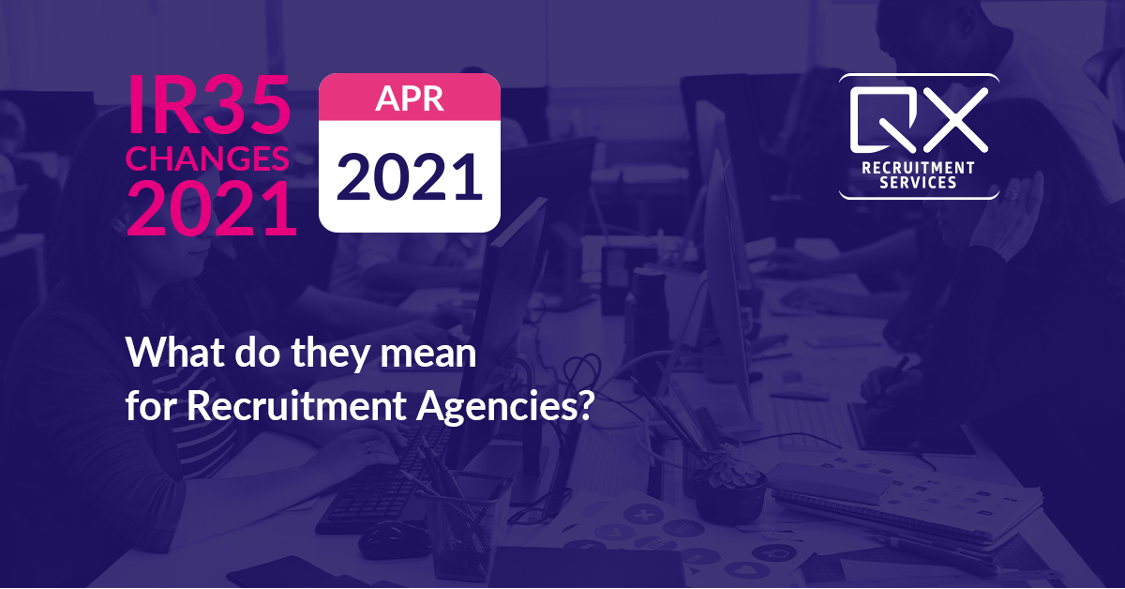Sponsored: How IR35 Change is to Impact UK Businesses and How Staffing Firms Can Address their Concerns

IR35 – What is it about the regulation?
IR35, commonly referred to as ‘Intermediaries Regulation’ and ‘off-payroll working rules’, governs the tax status of contractors that provide services through intermediaries such as Personal Services Company (PSC). This HMRC designed legislation assesses whether the contractor is genuine or a ‘disguised employee’ operating as a contractor for tax evasion.
‘Inside IR35’ contract means you are an employee in the eyes of HMRC and must pay income tax and NIC as employees do.
‘Outside IR35’ contract means you are self-employed for HMRC and get the tax benefits associated with self-employment.
However, it’s not all black and white, and there is a lot of controversy and confusion around these rules.
IR35 for the Public and Private Sector
- Public Sector The end-user (client availing the service) or the agency determines if the contract falls inside or outside IR35. If it falls within IR35, the end-user or the agency that pays the contractor must deduct income tax and NICs.
- Private Sector The contractors must work out whether their contract falls within or outside the off-payroll working rules. If it falls inside IR35, they must pay due tax and NICs.
However, the private sector rule is set to change in April 2021.
Private Sector IR35 Reform in April 2021
This reform was set to take place in April 2020 but was deferred by a year due to the COVID-19 pandemic. The public sector IR35 rules will apply to the private sector as well. These changes mean:
- Mid-sized and large-sized companies will be accountable for determining the contractor’s employment standing (employed or self-employed).
- The contractors must be provided with a status determination statement that sheds light on the reasons behind why a specific employment status was chosen for the contractor. The decision can be subjected to dispute by the contractors upon disagreement.
- Small-sized companies remain exempt from these reforms. The rules remain unchanged, i.e., the contractors will be accountable for their employment status.
Note that for a company to be classified as small-sized, it must meet the following conditions:
- Annual turnover must be less than £10.2 million
- The balance sheet total must be less than £5.1 million
- Must have less than 50 employees
With this change implemented, the end-users and agencies will be held responsible if anything goes wrong around employment status assessment. Organisations and contractors must be prepared for these changes if they aren’t already. Identifying which clients count as small businesses or recognising clauses in the contract that impact employment status decision is vital.
Businesses that will be impacted by the IR35 changes:
- More than 60,000 mid-sized and large-sized businesses of the private sector that work with personnel through intermediaries.
- More than 20,000 staffing agencies and intermediaries, supplying off-payroll workforce through intermediaries.
- Self-employed personnel that provide their services through intermediaries.
Impact on Recruitment Industry
As mentioned earlier, these changes mean mid- and large-sized businesses need to supply a status determination statement to the third-party contractor – in this case, a staffing agency, with reasons that led to the status determination conclusion. The staffing agency then needs to pass on the determination statement to the next entity in the supply chain, for example, a second agency. Failing to do that, the liability for tax and NIC payments shall lie with the staffing firm.
The end-user must set up a status disagreement process and respond to the contractors’ appeals within 45 days of receipt. Suppose the recruiting business is the fee payer. In that case, it needs to co-ordinate with the worker and devise a process to decide whether or not to contest the employment status determinations.
In case the off-payroll working rules apply, the fee payer must apply PAYE withholding and incur costs around NIC and Apprenticeship Levy. For recruitment businesses, if there is non-compliance further down the labour supply chain, the liabilities for tax and NIC will be transferred back up to the first agency, and finally, the source, the end-user.
What must Recruitment Agencies do to get on top of IR35?
One of the most critical steps staffing businesses must take to stay on top of IR35 is to collaborate with third-party recruitment experts, RPOs and MSPs, who understand the nitty-gritty of the IR35 legislation, its changes and how it affects your business.
Additionally:
- Review current contracts with clients and determine the number of workers working for clients operating through the off-payroll setup.
- Review your labour supply chain for risk assessment.
- Identify the clients that may fall ‘outside IR35’ by falling under the ‘small-sized business’ category.
- Educate the workers operating via intermediaries on new changes, especially the status disagreement process.
- Evaluate the risks and financial impact of the changes, and assess if contracts need to be renegotiated with clients to mitigate the potential impact.
At QX Global Group, we’ve helped several leading UK-based recruitment agencies navigate the IR35 reforms in the public sector, giving us deep insights into the impact of off-payroll working rules. If you work with a large volume of the contingent workforce, then a Recruitment Process Outsourcing specialist can streamline and bring efficacy to your processes via a technology platform that reduces administrative burden and ensure IR35 compliance.
